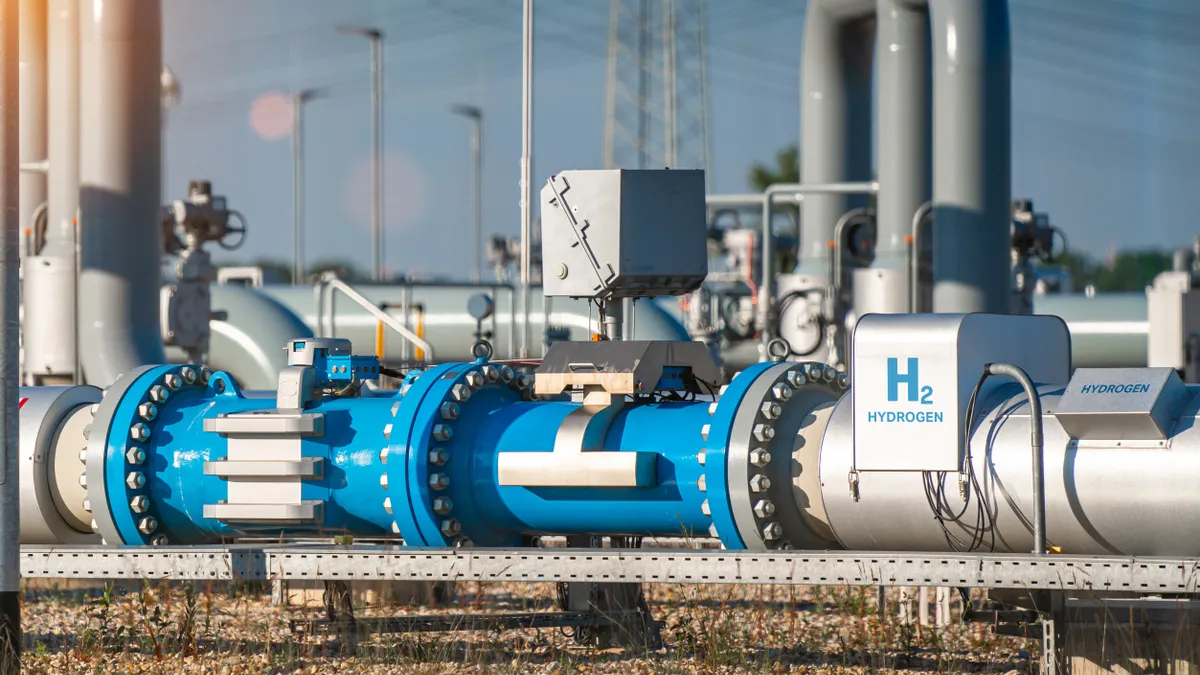Dive Brief:
-
The U.S. Department of Energy issued a Notice of Intent and Request for Information on Wednesday that calls for ideas for a $1 billion initiative to support demand for clean hydrogen from competitively selected hydrogen projects at hydrogen hubs.
-
Previous requests for information identified a need for new tools to help would-be users of clean hydrogen manage the financial risks associated with the fuel, according to the notice.
-
Although there is strong interest in the use of clean hydrogen, the unproven nature of the commodity is making it difficult for end users to secure financing, said Mona Dajani, an attorney who heads the hydrogen and ammonia practice at Shearman & Sterling.
Dive Insight:
Interest in producing clean hydrogen has grown dramatically in light of the Inflation Reduction Act’s production tax credit and the DOE’s effort to help fund up to 10 hydrogen hubs across the U.S. But building up the demand side of the market may require more government support, according to the DOE.
Wednesday’s notice outlines the DOE’s intent to design support mechanisms to shore up demand for clean hydrogen from the planned hubs and solicits feedback on what kind of mechanism may be most effective at helping would-be buyers of clean hydrogen secure financing for their purchases. Ideas floated by the department include pay-for-difference contracts, funding for feasibility studies, and reverse auctions in which the DOE would award funding to the projects that require the lowest level of financial support.
According to the DOE, the mechanism would be administered by an independent entity, and experience with the project could inform future initiatives for other clean energy technologies.
It’s not that there is a lack of demand-side interest in hydrogen, said Dajani, who has worked on projects with offtakers in the transportation, manufacturing and power sectors. And demand is expected to increase as pressure to decarbonize these and other sectors continues to grow.
But many of these would-be offtakers have struggled to finance their plans to use hydrogen — a fuel with a limited track record and that lacks an open commodity market with indexed pricing to form the basis of deals with financiers and investors, according to Dajani.
Meanwhile utilities and legacy energy companies around the world are moving forward with plans to produce hydrogen at scale — motivated primarily by a desire to secure market share, Dajani said. But the scale of these projects will require long-term offtake agreements. End users, on the other hand, prefer shorter terms.
“What we really need here is more certainty to provide transparency on market prices and contract terms,” Dajani said.
A DOE-backed initiative, Dajani said, could go a long way toward removing the current bottleneck and accelerating the adoption of clean hydrogen if the department is able to find a way to reduce risk for offtakers and their investors.













